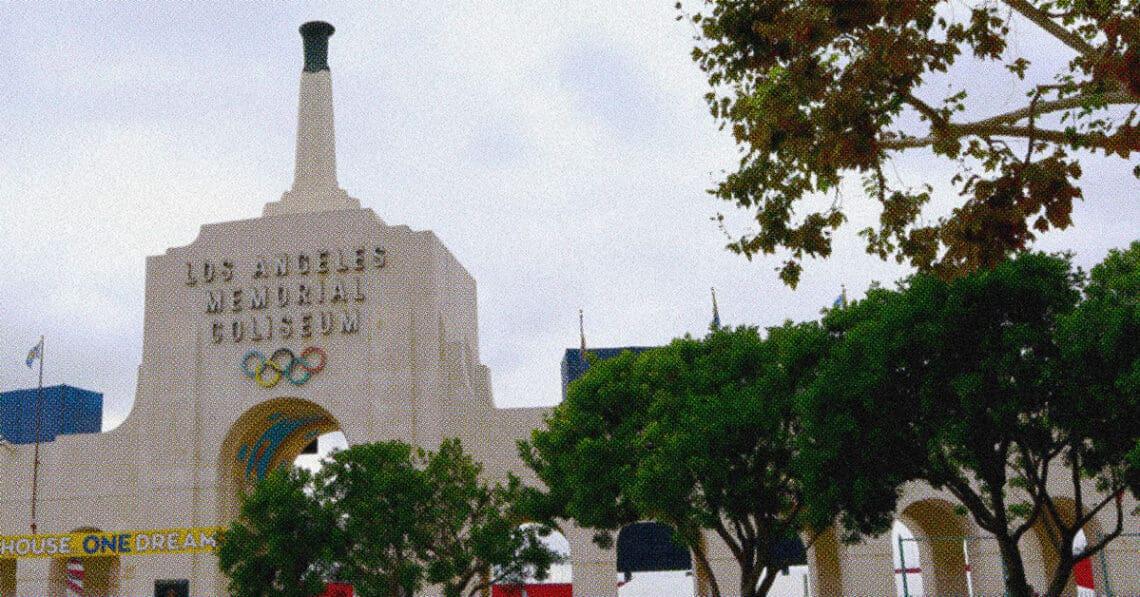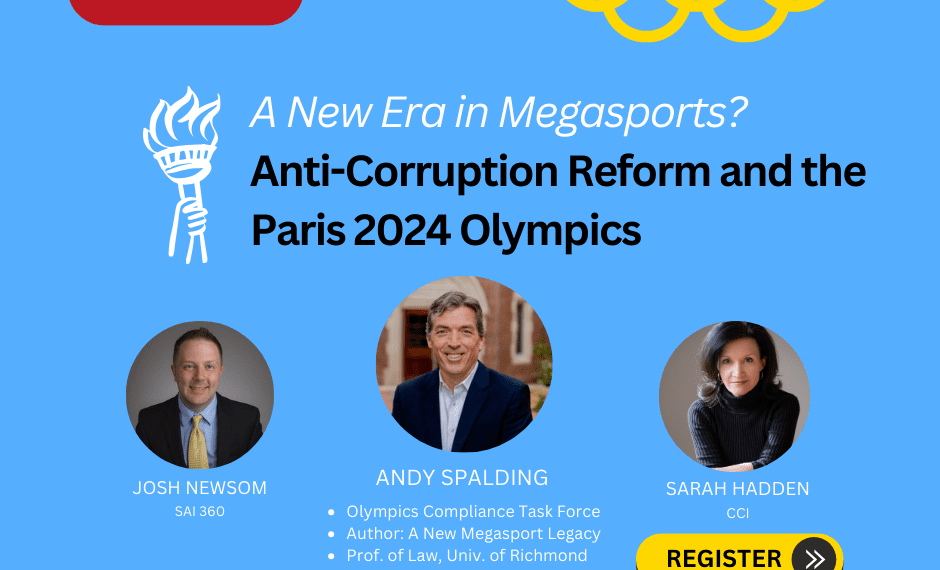Abhiraj Giritharan, a rising 3L at NYU Law and a 2025 summer associate at Michelman & Robinson, contributed to this report.
Los Angeles will become the epicenter of the sports world, starting with the men’s FIFA World Cup next year and culminating in the 2028 Summer Olympics, which return to L.A. for the first time in more than four decades. The business benefits are vast, says Warren Koshofer of Michelman & Robinson, who warns that so are the hurdles (pun intended), from potential violations of intellectual property laws to environmental regulation.
In 2028, the Olympic torch will again light up the City of Angels, marking the third time Los Angeles has hosted the Summer Games. But this time, the spectacle is slated to be preceded by a gauntlet of mega-events — the men’s FIFA World Cup in 2026 and the Super Bowl in 2027, making L.A. the de facto epicenter of global sport and culture for the next three years.
The potential upside for the local economy is immense. Billions in spending. Millions of visitors. Global attention. Yet for all the promise, the financial and legal stakes for organizations are equally high. The implications of LA28 extend across nearly every major industry and area of law, including hospitality and employment, construction and development, insurance and risk management and environmental sustainability.
Businesses and stakeholders address a variety of issues to capitalize on LA28-related opportunities while avoiding risk. For general counsel, executives, venue operators, developers and investors alike, the time to plan is now.
The hospitality & employment landscape
Nowhere will the legal and economic impact of the coming Summer Games be felt more acutely than in the hospitality industry. In May, Los Angeles passed what’s informally being called the “Olympic Wage Ordinance,” an amendment to the city’s hotel worker minimum wage ordinance that significantly raises the wage floor for hotels with 60 or more rooms.
Under this new law, the hourly minimum wage for covered hotel workers would eventually rise to $30, climbing $2.50 per year through July 2028, though enforcement is on hold pending a petition for referendum. In addition, starting July 1, 2026, hotels must either offer qualifying health insurance or pay a healthcare stipend of $8.35 per hour, the latter representing a 71% increase over current benefit levels. If they take full effect, these changes would have a seismic impact on staffing costs, with total labor expenses potentially doubling by 2028 for some operators. Adding complexity is a newly mandated city-run training program for housekeepers, set to take effect in December 2025.
In light of these challenges, hotel owners and operators should be reviewing their 2028 room block agreements. Many of these contracts were negotiated years ago, before the wage ordinance was introduced, and may no longer reflect the economic reality on the ground.
Employers must also brace for wage compression among mid-tier roles, assess compliance strategies and keep tabs on the referendum and other potential efforts to delay the ordinance.
Construction & development: A new building boom with old risks
Though LA28 organizers have promoted a “no new permanent venue” strategy aimed at minimizing costs and environmental impact by relying on existing infrastructure, the Summer Games will nonetheless unfold against the backdrop of massive recent construction and redevelopment throughout the region.
More than $8.5 billion has been invested in high-profile projects over the past several years, including SoFi Stadium in Inglewood (estimated at $5.5 billion), the nearby Hollywood Park mixed-use development and the Intuit Dome, among others. While these projects were not built exclusively for the Olympics, they are integral to LA28’s venue plan and will be heavily utilized during the two-plus weeks of competition.
Despite the lack of new Olympic-specific stadiums, this cumulative development boom brings with it a host of legal and regulatory concerns. Chief among them is California’s Environmental Quality Act (CEQA), which requires detailed environmental impact assessments and gives third parties the right to litigate over alleged deficiencies. While some Olympic-related efforts may benefit from CEQA streamlining, the law remains a potent tool for opponents of development, and lawsuits can delay or derail projects for months.
In addition, emergency CEQA suspensions used during the ongoing wildfire rebuilding efforts have raised alarm among environmental advocates, who fear that the precedent may encourage similar bypasses for development earmarked for the Olympics. Legal scrutiny over these exemptions is mounting, particularly as environmental justice concerns become more central to urban planning and land-use debates.
Developers and contractors involved in Olympic-adjacent projects should be vigilant. Construction contracts should include clearly defined cost escalation clauses, liquidated damages provisions and dispute resolution protocols. Where possible, risk-mitigation strategies — such as tiered timelines, government action clauses and robust indemnity provisions — should be built into agreements from the outset. At the same time, all parties should closely monitor CEQA litigation trends and ensure airtight documentation of environmental compliance for any project taking advantage of exemptions.
Finally, entitlement and rezoning issues are gaining traction in areas like Inglewood, where development linked to SoFi Stadium and Hollywood Park has driven rising property values and displacement pressures. Legal challenges surrounding zoning changes, tenant protections and environmental justice statutes are already underway and may increase as the Olympic timeline accelerates.
Sustainability goals vs. legal reality
The LA28 organizing committee has pledged to deliver the most sustainable Olympic Games in history. Central to this commitment is a strategy focused on adaptive reuse, minimizing environmental impact by relying on existing venues rather than constructing new permanent facilities. To support this approach, over $1 billion has been allocated for temporary overlays and renovations across more than 40 venues throughout the Los Angeles region.
Despite these ambitious plans, several mounting challenges threaten the realization of LA28’s sustainability objectives. Recent years have underscored the fragility of the region’s infrastructure. So far in 2025, wildfires caused almost $5 billion in damages and displaced nearly 200,000 residents across California. While Olympic venues like the Riviera Country Club and UCLA were spared, their proximity to fire zones highlights the risk. Additionally, air quality remains a persistent concern, given Los Angeles’s topography and its historic reliance on automobiles. Despite the push toward public transit, the anticipated influx of millions of Olympic visitors and intensified industrial activity could strain infrastructure and exacerbate smog, posing health risks for both residents and athletes.
Even within LA28’s reuse-first framework, execution has already fallen short of stated goals. Only a limited number of venues have been retrofitted with renewable energy infrastructure, and Scope 3 emissions — which include international travel, supply chain logistics and athlete transportation — remain largely unaccounted for. Adding to the uncertainty, LA28’s own sustainability reports have faced repeated delays, prompting criticism from community leaders and climate advocates over transparency and accountability.
Transportation infrastructure is also a key pillar of LA28’s climate strategy. The “Twenty-Eight by ’28” initiative, launched by former Mayor Eric Garcetti, was designed to complete 28 major public transit projects before the Games, with the aspirational goal of enabling a “no-car” Olympics. These projects include expanded LA Metro lines and the deployment of thousands of electric buses.
However, progress has been very slow, with legal disputes over eminent domain, community opposition and California’s ever-expanding budget deficit — projected to exceed $45 billion — contributing to delays, scaled-back ambitions and potential project cancellations. Several environmental programs tied to Olympic development have already lost matching state grants due to California’s budget woes, forcing local agencies and LA28 organizers to seek alternative funding sources or reduce programmatic scope.
From a legal perspective, these sustainability and infrastructure initiatives intersect with a host of regulatory frameworks. While CEQA is instrumental in safeguarding environmental standards, it can also present significant hurdles for project timelines and costs.
Managing risk in a post-pandemic world
The 2020 Tokyo Olympics, postponed due to Covid-19, cost insurers billions and underscored the fragility of even the most well-planned mega-events. Los Angeles has learned from this experience. The LA28 host city agreement mandates wide-ranging insurance coverage for potential disruptions, including natural disasters, pandemics, terrorism, civil unrest and event cancellations.
But comprehensive insurance is expensive, and the post-pandemic market is less forgiving, especially when factoring in L.A.’s wildfires and recent political turmoil. Many standard property or business interruption policies still exclude pandemics or civil authority shutdowns unless specifically endorsed. Event organizers, hotels, tour operators and venue owners should consider specialized policies that include, for example, multi-trigger event cancellation coverage, communicable disease riders or even parametric insurance.
From a legal standpoint, this means reviewing every clause in vendor agreements, room block contracts and venue leases to ensure compliance with insurance obligations. It also requires coordinated diligence with brokers and legal counsel to avoid coverage gaps, particularly in high-risk zones for wildfire, flood or protest-related loss.
Marketing & brand compliance: Walking the IP tightrope
For brands hoping to ride the Olympic marketing wave, caution is critical. The Olympic rings and related intellectual property are fiercely protected by the International Olympic Committee (IOC) and the US Olympic & Paralympic Committee (USOPC). Unauthorized use of Olympic imagery, terminology or inferred affiliation — often referred to as “ambush marketing” — can lead to swift legal action.
Even small businesses are at risk. A café offering “Gold Medal Coffee” or a retailer running a “Road to the Podium” sale could receive a cease-and-desist. In fact, during previous Games, litigation has been initiated against companies using indirect associations without permission.
To mitigate these risks, businesses should conduct preemptive IP audits of all marketing materials scheduled for release during the Olympic window. Any event-based branding — whether pop-ups, concerts or influencer campaigns — should be cleared by legal teams for compliance, licensing needs and indemnification terms. Retailers and venues hosting Olympic-themed events should also coordinate with insurance counsel to secure event-specific liability policies and permits.
Legal strategy as Olympic readiness
For Los Angeles, hosting the Olympic Games is an unparalleled opportunity, but it is also a financial and legal crucible. For stakeholders across industries, the next three years demand not only vision and execution but legal foresight.
Labor laws are shifting. Environmental rules are tightening. Insurance markets are volatile. City and state budget woes issues grow. And community voices are louder and more volatile than ever. Despite this, for businesses that plan ahead and align with experienced legal counsel, LA28 can be a moment of growth, resilience and legacy.




 Warren Koshofer is a partner in the New York and Los Angeles offices of Michelman & Robinson, a US law firm headquartered in Los Angeles, with additional locations in Irvine, San Francisco, Dallas, Houston and Chicago. A member of the firm’s commercial and business litigation practice group, Warren is well-versed in environmental, sustainability, insurance, risk management and related issues across industries, as well as the litigation risks arising out of commercial transactions, business acquisitions and intellectual property rights.
Warren Koshofer is a partner in the New York and Los Angeles offices of Michelman & Robinson, a US law firm headquartered in Los Angeles, with additional locations in Irvine, San Francisco, Dallas, Houston and Chicago. A member of the firm’s commercial and business litigation practice group, Warren is well-versed in environmental, sustainability, insurance, risk management and related issues across industries, as well as the litigation risks arising out of commercial transactions, business acquisitions and intellectual property rights. 






